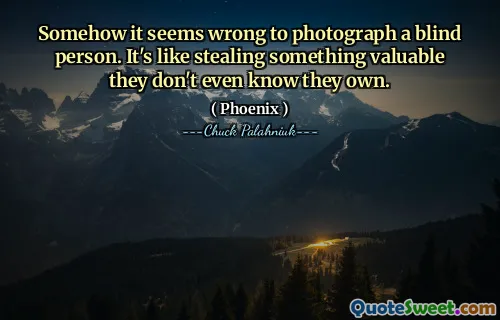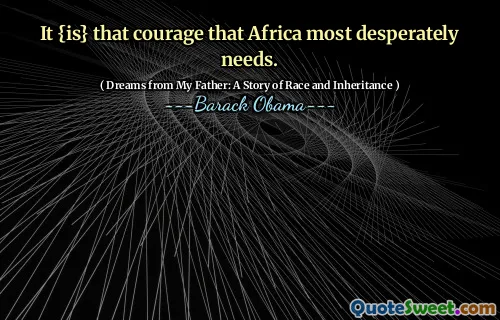
Somehow it seems wrong to photograph a blind person. It's like stealing something valuable they don't even know they own.
[Markdown format] The quote delves into the complex ethical considerations surrounding privacy, consent, and the idea of value. It highlights how capturing an image of someone who cannot see or comprehend it presents a form of exploitation, much like stealing something precious that belongs to them but remains inaccessible or unnoticed by them. This analogy invites us to reflect on the morality of observation and representation, especially when the subject lacks awareness or agency.
In a broader sense, it challenges societal perceptions of vulnerability and respect. Photography, often seen as an act of capturing truth or beauty, can also become a weapon or a violation if done without consideration of the subject's dignity. When the subject cannot see or understand the photograph, the act of taking it is removed from the realm of mutual appreciation and enters the territory of invasive exploitation. This raises questions about the boundaries of artistic and journalistic pursuits, urging us to consider whether our desire to document or share images justifies disregarding the rights or autonomy of others.
Furthermore, the metaphor extends beyond photography into broader ethical discussions: When do our actions infringe on others' unawareness or lack of consent? Do we have the right to possess or share something about someone that they cannot acknowledge or verify? The quote serves as a reminder to be mindful of the impact and morality of our actions, especially in an age where information and images are easily accessible and shared globally.
Ultimately, it touches on the importance of empathy and respect in our interactions with others, emphasizing that some boundaries should be maintained—not out of fear or censorship, but out of a genuine concern for moral integrity.
(book: '( Phoenix )') - author: '---Chuck Palahniuk---'





